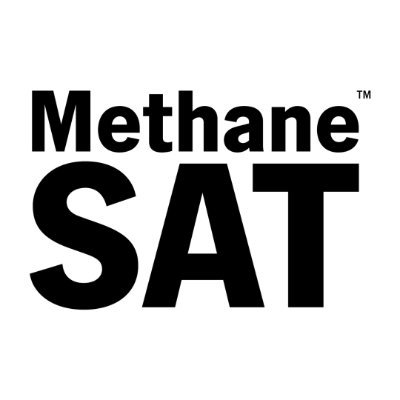
MethaneSAT
@MethaneSAT
Followers
6K
Following
1K
Media
304
Statuses
2K
First NGO-launched #methane satellite. Contact lost, but the mission continues: sharing data, scaling tech, driving action. A project of @EnvDefenseFund.
Joined September 2019
On Friday, June 20 we lost contact with our methane-measuring satellite. Despite considerable efforts we were unable to reestablish contact. This morning we learned that the satellite has lost power, and it is anticipated to be unrecoverable. The MethaneSAT mission has been a
29
26
74
Losing MethaneSAT doesn't mean losing sight of methane, writes @mbarnardca. A network of satellites — including @ghgsat & @carbonmapper — continues to sharpen our view of emissions. The mission for transparency goes on. 💡 More data insights to come.
medium.com
With GHGSat, Carbon Mapper, and AI-enhanced imagery from Sentinel and GOSAT, global methane detection remains relentless and expanding.
0
2
2
The data MethaneSAT collected are closing key gaps — giving a clearer view of methane from oil & gas basins worldwide. Available via @googleearth + @googlecloud. 🔗 Request access: https://t.co/cAtUHjXGOd
0
0
2
Methane intensity in Texas is 2X as high as in New Mexico, according to @MethaneSAT observations of the Permian Basin. 🛰️ EDF's Daniel Zavala-Araiza spoke on what this means for progress ⬇️ Learn more: https://t.co/ZgbwMRxdgn
1
2
2
Oil and gas methane standards can reduce waste and improve air quality for local communities. 🛰️ @krqe reports on @MethaneSAT observations of the Permian Basin that indicate improvements in New Mexico’s #CutMethane work:
krqe.com
NEW MEXICO (KRQE) – The Governor’s Office presented new satellite data over New Mexico, suggesting big improvements in the amount of methane escaping into the atmosphere. The latest…
0
4
4
.@thecrimson spoke with Harvard scientists about MethaneSAT insights and next steps — processing the mission’s global observations and continuing MethaneAIR data collection. Read more:
thecrimson.com
MethaneSAT Went Dark in June. What’s Next for the Harvard Scientists Behind It? | News | The Harvard Crimson
0
0
0
New science: MethaneAIR, the airborne precursor to MethaneSAT, detected more than 400 methane point sources across 13 U.S. oil and gas basins between 2021 and 2023. About 80% of these emissions came from oil and gas. Coal, landfills, and large farms also contributed
0
4
6
Analysis of @MethaneSAT data from the Permian Basin suggests strong methane regulations are making a difference. In New Mexico, oil & gas methane intensity is now less than half of what’s measured on the Texas side of the basin. @krqe has the story ⬇️
krqe.com
NEW MEXICO (KRQE) – The Governor’s Office presented new satellite data over New Mexico, suggesting big improvements in the amount of methane escaping into the atmosphere. The latest…
1
3
3
MethaneAIR data helped @Harvard alum @jjgiordano1 shine a light on methane emissions in Southwest Pennsylvania. 📸 Check out Julian's photos, which offer visual and contextual insights into high-emissions sites in the Appalachian Basin: https://t.co/xgB6DkT3iV
0
4
6
🛰️MethaneSAT's data enabled novel comparison of Permian methane mitigation efforts. Findings show emission intensity for New Mexico operators is less than half the rate in Texas, corresponding with better standards helping to cut pollution + reduce waste. https://t.co/mauTryRnco
0
3
4
An amazing piece of work looking at putting a face to methane emissions in the US https://t.co/GUvWS9s6Ac
0
10
12
🛰️ New insights from @MethaneSAT data show oil and gas methane intensity in New Mexico is less than half that of Texas in the Permian Basin — corresponding with strong state standards under @GovMLG. 🔍 Check it out: https://t.co/ZgbwMRxdgn
0
8
8
🔎 New MethaneSAT insights reveal a striking contrast between states in the Permian. In New Mexico, which has strong methane protections, methane intensity is less than half that of operations in Texas. 🔗 https://t.co/mauTryQPmQ
0
2
13
Methane is one of the most urgent climate challenges -- and one of the most solvable. @nickvanosdol & @Trashis4Tossers break it down 👇 🔗
0
5
6
New study: MethaneAIR’s high-resolution spectrometer enables precise detection of methane plumes. • Detected hundreds of sources above 100–200 kilograms per hour • Detection limit around 120 kilograms per hour Full paper: https://t.co/etVwyw15cr
0
2
8
MethaneSAT collected a year’s worth of global methane observations – and we’re just starting to unearth all the insights. Stay tuned for new scenes and analysis as we continue releasing data from one of the most advanced methane missions to date. 🔗 https://t.co/W9SWnJn45S
0
8
13
MethaneSAT may be offline, but the work continues. We’re still monitoring methane – and building on everything we learned – through new platforms, including MethaneAIR. More coming soon. https://t.co/bu1DJTC7zh
1
5
16
MethaneSAT data is publicly available to explore and download – including for commercial use. If you're doing research or building tools to cut methane, start here: 📡 Google Earth Engine + Cloud access: https://t.co/VlyHuoh4JW
0
7
17
A bold idea. A breakthrough mission. A year of seeing the unseen. We set out to close a critical data gap – and delivered global insights that will keep driving action. The mission continues. We’re continuing to process and release these insights. https://t.co/pNOdumD0FX
1
4
10
.@EnvDefenseFund President @FredKrupp reflects on MethaneSAT and why bold, independent climate action matters. In 1 year, we: • Detected methane at 2 ppb • Mapped oil & gas emissions • Traced them to the source The mission continues. Read more @wef: https://t.co/VcL6b5STK9
1
8
19





